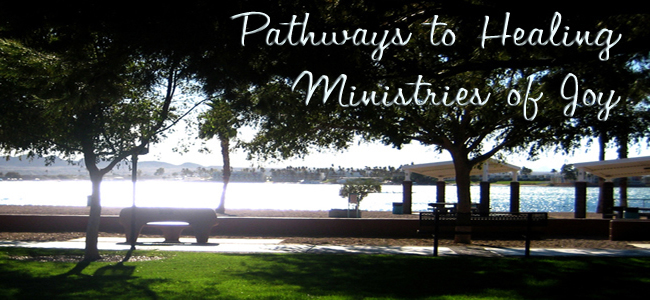Have you ever wondered why Jesus, who went about healing and giving hope to the multitudes, became hated and hung—nailed to a cross? What is in hu-man nature that can produce such heinous behavior?
Several years ago, I attended a workshop where in small groups we discussed what Christ’s life was all about. In conclusion of our studies, we all were sure jealousy was what took Him to the cross.
Of course, the powers of both political and religious factions had strategies in place. Scripture depicts jealousy and fear spreading like wildfire. But it also makes it clear that God was at work unfolding His eternal plan for our salvation from our sins. It was all about Jesus’ love for us, as He became “God’s sacrificial lamb.” The blood of God’s son would henceforth cover our sins.
A woman, who was gifted from birth with a beautiful voice, sat at my table at the workshop. Knowing I was there, covering the event for the press, she leaned forward and said, “If you are going to write something, write about jealousy.” Then she told her story.
In her early years of school, a teacher harshly criticized her voice, telling her she could not carry a tune. By high school, it was a different story. There her music teacher encouraged her to develop her voice as surely she had a “marketable product.”
This woman grew up using her gift in her church, longing to honor only her Lord. In time, invitations carried her ability beyond the church to weddings, funerals, and other occasions. Always she sung sa-cred songs. She told of the pain that had come through cruel remarks that had caused her to ques-tion her gift as she was belittled—undermined in the little ways . . . and sometimes met with outright meanness.
This beautiful wounded one, who, in addition, was graced with humility, kept on singing, albeit often over sets of envious eyes. It took all the courage she could muster to keep standing before crowds, minis-tering in the way she felt called.
In a way, Jesus had a song. He, too, sang it in his own hometown. The power and the wisdom of His words were undeniable, but there, on His own turf, He had little if any respect. Jealousy was aroused when He began healing people. Scripture says, “They took offense at Him.” How dare he, a local carpenter, move from that mold? They did not want to believe. So, they hardened their hearts against him and His miracles.
Eventually, a company of 12 men, deciding the presence and power of God was in Jesus, chose to walk with Him. They, too, sacrificed their lives for extending Christ’s teachings.
His song was heard and revered all along the paths He trod. Gaining momentum, it reached its crescen-do on a cruel cross. His was a song picked up by followers and carried across the centuries, today still capturing hearts.
Yes, time and time again we meet with truth. Anyone who sings the song of Christ, the Great Troubadour must also carry a cross. For, rivalry rests uneasily, like a cocklebur, at the core of the human soul. That desire to be equal to or better than the other serves to breed divisions, envy and fear.
Christ bequeathed us the power to die to these de-sires. Still, we may at times feel inept when someone close to us steps forward and shows signs of great-ness. Those twinges of discomfort are about fear of being left behind—fear of relationships never being the same again. Resounding again and again the tune of our need to curb, change and exert control. Sometimes it is about wanting the same kind of ap-preciation and praise, yet not being willing to find one’s own specialness, or giftedness.
Imagine how different the world would be if each one within it could be dedicated to encouraging oth-ers, helping them discover, develop and refine their area of greatness, that realm in which their “songs” could best be sung and heard.
Do you suppose there will be a time, after which we all have passed over into eternal realms, when each of us will be surprised at who we walked with? No doubt Jesus will be drying some tears as we fully re-alize our behaviors that actually suppressed or even oppressed another. A beautiful passage of Scripture shows Jesus wiping our tears away. His love is greater than our wrongs.
People of all the many ages across time keep repeating same behaviors. For instance, if Jesus were to step forward today from the midst of one of our cities under the guise, of say, a welder proclaiming a message that challenged ways we are comfortable with, do you think things would be much different than it was for Jesus, a carpenter in Galilee?
Today’s critics and skeptics would no doubt make His work quite hard. Curious, yet castigating crowds would play their part. Would he again be likely to search out humble men and women, maybe blue col-lar workers, to be His disciples? Surely His miracles would be questioned, or refuted. Perhaps His great-est pain of all would come from needing to break away from people with whom He held close ties. He would know, while heading down the freeway to follow His call, that human nature hasn’t changed.
But, thanks be to God for the cross, followed by His resurrection! The culmination of Jesus’ life grants us the power to be different from the throngs who stood watching on that long day at Golgotha, as they witnessed Him breathe His last breath.
For many of us, His last words were vibrantly full of love, “Father, forgive them, for they do not know what they do” (Luke 23:34).
“For God so loved the world that He gave His only begotten Son, that whoever believes in Him should not perish but have everlasting life. For God did not send His Son into the world to condemn the world, but that the world through Him might be saved” (John 3:16-17).
Each one of us decides whether or not to believe that kind of love exists for us. The choice to believe, or not to believe, is ours.


Leave A Comment